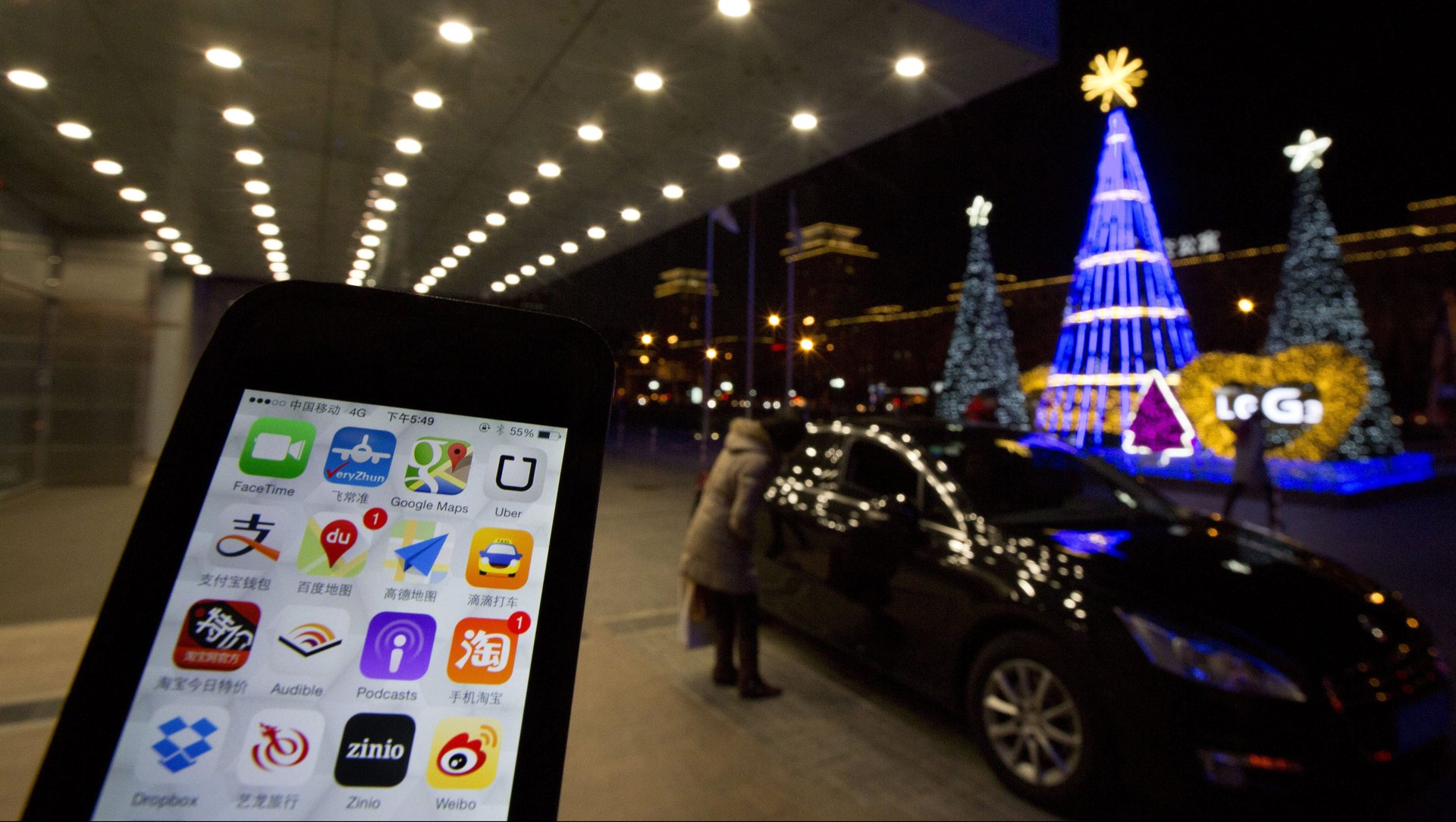Uber’s defeat in China is bad news for Chinese drivers and riders
The fierce competition in China’s ride-hailing market is over. Didi Chuxing, China’s dominant riding-hailing company, announced Monday (Aug. 1) it will acquire Uber’s China business to create a new combined company valued at $35 billion. Under the agreement, Uber China will have an independent brand and business operations.


The fierce competition in China’s ride-hailing market is over. Didi Chuxing, China’s dominant riding-hailing company, announced Monday (Aug. 1) it will acquire Uber’s China business to create a new combined company valued at $35 billion. Under the agreement, Uber China will have an independent brand and business operations.
By the end of 2015, Uber claimed to have a 30 to 35% market share in China, while Didi put its market share at more than 80%. Obviously someone was overestimating, but it is clear the new combined company is a near-monopoly. That’s unwelcome news for Chinese ride-sharing app users and drivers relying on these companies for income.
The merger will bring an end to a long-lasting subsidy war between Uber and Didi that has kept rides cheap and drivers well-paid.
In China’s riding-hailing sector, taking over new markets meant burning investor cash to subsidize drivers and passengers. Uber lost $2 billion by now, a source told Quartz. Didi is doing no better. Last month the company claimed it finally turned a profit in half of the 400 Chinese cities (paywall) where it operates.
The merger came after China’s government released new regulations legalizing ride-hailing services in China last week. The new law forbids these companies from setting fares below cost to push out competitors, essentially shutting down the subsidy business model.
Uber CEO Travis Kalanick previously accused its Chinese competitors of “buying up market share,” and said Uber had to follow them or be squeezed out of the market. A spokeswoman with Uber China told Quartz before the deal was announced that the average subsides Uber paid for Chinese drivers in 2016 were 80% lower than in 2015, and in many cities are 20 to 30% lower than Didi, because “we operate more efficiently.”
In a WeChat post that later hit Facebook, Kalanick said the merger will make the new company profitable, “the only way to sustainable business that can best serve Chinese riders, drivers, and cities over the long term.” But, at least in the short term, Chinese riders and drivers worry they will be the defacto losers.
“I only care if I can still get a 5-kilometer ride for just 3 yuan in the future,” one internet user commented under a news post (link in Chinese) about the merger on Wechat (three yuan is about 45 US cents). Another wrote: “All competition becomes monopoly in the end.”
Yue Tiankuan, 31, a Shanghai-based architect who drives for Uber part time, said he would rather Didi was acquired by Uber because passengers recognize Uber around the world. Yue said he drives about three to four hours every day, and earns some 400 yuan ($60) in subsidies per week, which accounts for 40% of his total income for driving Uber. When he started in April of 2015, the weekly subsidy he earned while driving for about the same time was 3,000 yuan, he recalled.
“Without subsidies, I will reduce my driving time, or even pick up orders that are on my route only,” he said.
Didi is no stranger to mergers. In February 2015, Didi acquired then China’s No. 2 ride-hailing player Kuaidi to become what now known as Didi Chuxing, a company that controlled an estimated 99% of the ride-sharing market at the time. Analysts said then the tie-up was more about destroying competition than it was about cooperation.
Eighteen months later, the same analysis is true again.